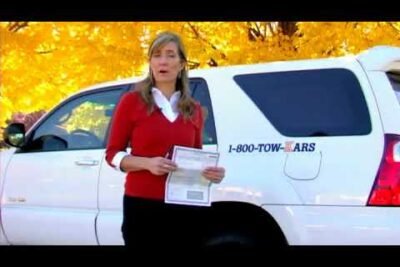
- Maximize Your Tax Deduction with Car Donation Benefits Today
- What Really Happens to Donated Cars? Uncover the Truth Today!
- Maximize Your Tax Benefits: The Smart Way to Donate Your Car
- Essential Proof of Donation for Tax Benefits: Maximize Your Deduction
- Donate a Car Without a Title: Easy Steps to Help Others Today
Donating your car to charity is a meaningful way to support causes you care about while also benefiting from potential tax deductions. In this comprehensive guide, we will explore the best charities that accept car donations, the benefits of donating, and how to ensure your donation makes the maximum impact.
Understanding Car Donations
What is a Car Donation?
Donating a car involves giving your vehicle to a charitable organization, which then uses it to further its mission. This can include selling the car to raise funds, using it for operational purposes, or providing it to someone in need. Charities that accept car donations often have specific programs in place to handle these contributions efficiently.
Benefits of Donating Your Car
There are numerous benefits to donating your car to charity:
- Tax Deductions Donors can often claim a tax deduction based on the fair market value of the vehicle.
- Convenience Charities typically handle the towing and paperwork, making the process hassle-free.
- Supporting a Cause Your donation can provide significant support to charitable programs and initiatives.
- Environmental Impact Donating an old car can be more environmentally friendly than selling or scrapping it.
How Car Donations Work
The process of donating a car generally involves the following steps:
- Choose a Charity Select a reputable charity that accepts car donations.
- Contact the Charity Reach out to the charity to initiate the donation process.
- Provide Vehicle Information Share details about your car, including make, model, and condition.
- Schedule a Pickup Arrange for the charity to pick up the vehicle.
- Transfer Ownership Complete the necessary paperwork to transfer the car's title to the charity.
- Receive a Receipt Obtain a receipt for your donation, which you will need for tax purposes.
Choosing the Right Charity for Your Car Donation
Importance of Selecting Reputable Charities
Selecting a reputable charity ensures that your donation will be used effectively and ethically. Reputable charitable organizations that accept vehicle donations are transparent about how they use donations and have a track record of positive impact.
How to Verify Charity Status (501(c)(3))
To ensure your donation is tax-deductible, verify that the charity is a registered 501(c)(3) organization. You can check a charity's status using the IRS's online tool, Publication 78. This verification step is crucial to avoid potential issues with your tax deduction.
Researching Charity Impact and Financial Practices
Before donating, research the charity's impact and financial practices. Look for:
- Annual Reports Review the charity's annual reports to understand how funds are allocated.
- Charity Ratings Check ratings from organizations like Charity Navigator or GuideStar.
- Transparency Ensure the charity is transparent about its programs and financials.
Top Charities That Accept Car Donations
American Red Cross
The American Red Cross has a robust vehicle donation program that supports its disaster relief efforts, blood drives, and other critical services. Donors can contribute cars in almost any condition, and the proceeds help fund the Red Cross's humanitarian work.
Habitat for Humanity
Habitat for Humanity accepts car donations to support its mission of building affordable housing. Donated vehicles are sold, and the proceeds are used to construct homes for families in need. This program helps provide stable housing and promotes community development.
Goodwill Industries
Goodwill Industries uses car donations to fund its job training and employment programs. Donated vehicles are sold at auction, and the revenue supports Goodwill's efforts to help individuals find work and achieve financial independence.
Vehicles for Change
Vehicles for Change focuses on providing affordable transportation to low-income families. Donated cars are repaired and given to families in need, helping them access employment, education, and other essential services. This program has a direct and tangible impact on recipients' lives.
Catholic Charities
Catholic Charities accepts car donations to support its wide range of social services, including food assistance, housing, and disaster relief. Donors benefit from tax deductions, and the proceeds from car sales help fund critical community programs.
The Car Donation Process
Preparing Your Vehicle for Donation
Before donating your car, take the following steps to prepare it:
- Clean the Car Remove personal items and clean the interior and exterior.
- Gather Documents Collect the car's title, registration, and any maintenance records.
- Remove License Plates Depending on your state's regulations, you may need to remove the license plates.
- Check for Liens Ensure there are no outstanding liens on the vehicle.
- Disable Toll Tags Remove any toll tags to avoid future charges.
Transferring Ownership: Step-by-Step Guide
Transferring ownership of your car to the charity involves several key steps:
- Sign the Title Complete the necessary sections on the car's title to transfer ownership.
- Provide a Lien Release If applicable, provide a lien release from the financing institution.
- Complete a Bill of Sale Some states require a bill of sale for vehicle transfers.
- Notify the DMV Inform your state's Department of Motor Vehicles (DMV) of the transfer.
- Cancel Insurance Cancel your car insurance once the transfer is complete.
Documentation Needed for Tax Deductions
To claim a tax deduction for your car donation, you will need the following documentation:
- Donation Receipt Obtain a receipt from the charity acknowledging your donation.
- IRS Form 8283 For donations valued over $500, complete IRS Form 8283.
- Written Acknowledgment For donations over $250, obtain a written acknowledgment from the charity.
- Appraisal For donations valued over $5,000, get a qualified appraisal.
Tax Benefits of Donating Your Car
Understanding Fair Market Value (FMV)
The fair market value (FMV) of your car is the price it would sell for on the open market. When claiming a tax deduction, you can generally use the FMV if the charity uses the car for its operations or sells it at a significant discount to someone in need. Otherwise, the deduction is based on the sale price of the vehicle.
IRS Guidelines for Car Donations
The IRS has specific guidelines for car donations, including:
- Qualified Charities Ensure the charity is a qualified 501(c)(3) organization.
- Documentation Keep thorough documentation of your donation.
- Form 1098-C For donations over $500, the charity must provide Form 1098-C.
- Fair Market Value Use FMV only if the charity uses the car for its mission.
How to Claim Your Tax Deduction
To claim your tax deduction, follow these steps:
- Itemize Deductions Itemize your deductions on Schedule A of your tax return.
- Complete Form 8283 For donations over $500, complete and attach Form 8283.
- Attach Form 1098-C If applicable, attach Form 1098-C to your tax return.
- Retain Documentation Keep all receipts and acknowledgments for your records.
Avoiding Common Pitfalls in Car Donations
Beware of For-Profit Intermediaries
Some for-profit companies pose as charities to solicit car donations. These intermediaries often take a significant portion of the proceeds, leaving less for the actual charity. To avoid this, donate directly to reputable charities accepting automobile contributions.
Recognizing Emotional Manipulation in Charity Ads
Be cautious of emotional ads that pressure you to donate. While many charities use emotional appeals, it's essential to verify the charity's legitimacy and impact before donating. Research the charity thoroughly to ensure your donation will be used effectively.
Ensuring Proper Vehicle Title Transfer
Properly transferring the car's title is crucial to avoid future liabilities. Ensure all paperwork is completed correctly and notify the DMV of the transfer. This step protects you from potential legal and financial issues related to the vehicle.
Frequently Asked Questions About Car Donations
Can I donate a car that doesn’t run?
Yes, many charities accept non-running cars. They often have partnerships with towing companies to handle the pickup and may sell the car for parts or scrap.
What happens to my car after I donate it?
After donation, the charity may sell the car at auction, use it for operational purposes, or provide it to someone in need. The proceeds support the charity's programs and services.
How do I know my donation is making an impact?
Research the charity's financial practices and impact reports. Reputable charities provide transparency about how donations are used and their outcomes.
Make a Difference with Your Car Donation
Donating your car to charity is a powerful way to support causes you care about while also benefiting from potential tax deductions. By choosing reputable nonprofits that take car donations, you can ensure your contribution makes a meaningful impact. Follow the steps outlined in this guide to navigate the car donation process smoothly and maximize the benefits for both you and the charity.
Sources of the Article
- USA Today - Best Car Donation Charities
- Forbes - Best Car Donation Charities
- Red Cross - Car Donations
- Vehicles for Change - Benefits of Donating a Car
- Catholic Charities - Donate Your Vehicle
- New York State Attorney General - Tips for Donating Your Vehicle
- Charity Navigator - Guide to Donating Your Car
- CARE - Cars for CARE Vehicle Donation Program
- St. Jude - Car Donation Program
Si quieres conocer otros artículos parecidos a Top Charities for Car Donations: Make a Difference Today! puedes visitar la categoría Car donation.
Leave a Reply
You must be logged in to post a comment.







Related posts